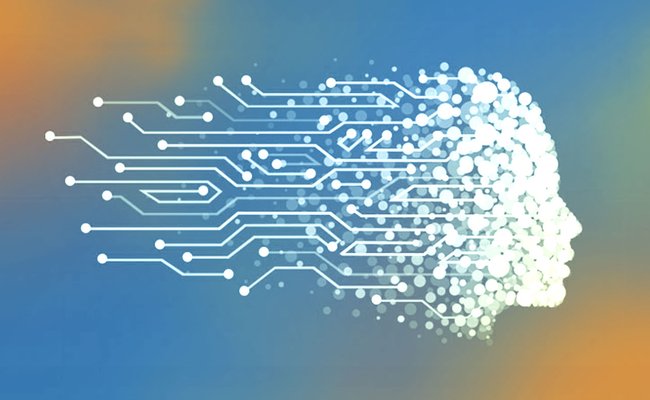Expert System (AI) is revolutionizing education while making discovering more accessible however likewise sparking disputes on its effect.

While students hail AI tools like ChatGPT for enhancing their knowing experience, speakers are raising issues about the growing reliance on AI, which they argue fosters laziness and undermines academic stability, specifically with numerous trainees not able to protect their projects or given works.
%20Is%20Used%20In%20Biometrics.jpg)
Prof. Isaac Nwaogwugwu, a lecturer at the University of Lagos, in an interview with Nairametrics, expressed disappointment over the growing dependence on AI-generated responses amongst trainees recounting a recent experience he had.
RelatedStories
Avoid sharing individual details that can determine you with AI tools- Expert cautions
Chinese AI app DeepSeek stimulates international tech selloff, difficulties U.S. AI supremacy
"I offered a task to my MBA students, and out of over 100 trainees, about 40% submitted the precise same responses. These students did not even understand each other, however they all used the very same AI tool to produce their actions," he stated.
He noted that this pattern is prevalent amongst both undergraduate and postgraduate students but is particularly concerning in part-time and distance learning programs.
"AI is a serious obstacle when it pertains to tasks. Many students no longer think critically-they just go online, generate responses, and send," he included.
Surprisingly, some speakers are also accused of over-relying on AI, forum.altaycoins.com setting a cycle where both educators and trainees turn to AI for benefit instead of intellectual rigor.
This argument raises critical concerns about the function of AI in academic integrity and student development.
According to a UNESCO report, while ChatGPT reached 100 million month-to-month active users in January 2023, just one nation had launched regulations on generative AI since July 2023.
Since December 2024, ChatGPT had over 300 million individuals utilizing the AI chatbot each week and 1 billion messages sent every day worldwide.
Decline of scholastic rigor
University lecturers are increasingly concerned about trainees submitting AI-generated tasks without really comprehending the material.
Dr. Felix Echekoba, a speaker at Nnamdi Azikiwe University, expressed his concerns to Nairametrics about trainees increasingly counting on ChatGPT, only to battle with addressing fundamental concerns when checked.
"Many trainees copy from ChatGPT and submit polished assignments, but when asked basic concerns, they go blank. It's frustrating because education has to do with discovering, not just passing courses," he said.
- Prof. Nwaogwugwu mentioned that the increasing variety of first-rate graduates can not be entirely associated to AI but admitted that even high-performing trainees utilize these tools.
"A first-class student is a first-rate student, AI or not, but that does not indicate they don't cheat. The advantages of AI might be peripheral, but it is making trainees dependent and less analytical," he stated.
- Another speaker, Dr. Ereke, from Ebonyi State University, raised a various concern that some speakers themselves are guilty of the same practice.
"It's not just trainees utilizing AI slackly. Some speakers, out of their own laziness, generate lesson notes, course details, marking schemes, and even examination concerns with AI without reviewing them. Students in turn utilize AI to generate answers. It's a cycle of laziness and it is eliminating real learning," he regreted.
Students' point of views on usage
Students, on the other hand, state AI has enhanced their knowing experience by making academic materials more reasonable and accessible.
- Eniola Arowosafe, a 300-level Business Administration trainee at Unilag, shared how AI has significantly assisted her knowing by breaking down complex terms and supplying summaries of prolonged texts.
"AI helped me understand things more easily, specifically when dealing with intricate topics," she discussed.
However, passfun.awardspace.us she recalled an instance when she utilized AI to submit her task, only for her lecturer to instantly acknowledge that it was created by ChatGPT and decline it. Eniola kept in mind that it was a good-bad effect.
- Bryan Okwuba, who recently graduated with a first-rate degree in Pharmacy Technology from the University of Lagos, securely thinks that his scholastic success wasn't due to any AI tool. He associates his impressive grades to actively appealing by asking concerns and focusing on areas that lecturers stress in class, as they are often shown in exam concerns.
"It's everything about being present, paying attention, and tapping into the wealth of understanding shared by my associates," he stated,
- Tunde Awoshita, akropolistravel.com a final-year marketing trainee at UNIZIK, confesses to sometimes copying directly from ChatGPT when facing numerous due dates.
"To be sincere, there are times I copy directly from ChatGPT when I have several due dates, and I know I'm guilty of that, most times the speakers don't get to go through them, but AI has likewise assisted me discover much faster."
Balancing AI's function in education
Experts believe the option lies in AI literacy; teaching students and lecturers how to use AI as a learning aid instead of a faster way.
- Minister of Education, Dr. Tunji Alausa, highlighted the integration of AI into Nigeria's education system, stressing the value of a balanced technique that maintains human involvement while utilizing AI to improve learning results.
"As we browse the quickly developing landscape of Artificial Intelligence (AI), it is vital that we prioritise human firm in education. We must ensure that AI improves, instead of replaces, educators' important function in shaping young minds," he said
Concerns over AI in Learning
Dorcas Akintade, a cybersecurity transformation expert, resolved growing issues regarding the use of expert system (AI) tools such as ChatGPT and their possible dangers to the academic system.
- She acknowledged the advantages of AI, nevertheless, emphasized the requirement for caution in its usage.
- Akintade highlighted the increasing resistance amongst teachers and schools towards integrating AI tools in finding out environments. She determined two primary reasons that AI tools are dissuaded in academic settings: security risks and plagiarism. She discussed that AI tools like ChatGPT are trained to react based on user interactions, which might not align with the expectations of educators.
"It is not taking a look at it as a tutor," Akintade stated, discussing that AI does not deal with particular mentor approaches.
Plagiarism is another concern, as AI pulls from existing information, often without correct attribution
"A great deal of individuals require to understand, like I said, this is information that has been trained on. It is not just bringing things out from the sky. It's bringing details that some other individuals are fed into it, which in essence means that is another person's documents," she warned.
- Additionally, Akintade highlighted an early problem in AI development understood as "hallucination," where AI tools would generate information that was not factual.
"Hallucination indicated that it was bringing out info from the air. If ChatGPT might not get that details from you, it was going to make one up," she discussed.
She suggested "grounding" AI by offering it with specific details to prevent such errors.
Navigating AI in Education
Akintade argued that prohibiting AI tools outright is not the service, particularly when AI presents a chance to leapfrog standard educational techniques.
- She thinks that consistently enhancing key information assists individuals keep in mind and prevent making errors when confronted with obstacles.
"Immersion brings conversion. When you inform individuals the very same thing over and over again, when they will make the mistakes, then they'll keep in mind."
She also empasized the need for clear policies and procedures within schools, noting that lots of schools need to resolve the people and process elements of this use.
- Prof. Nwaogwugwu has actually turned to in-class projects and wolvesbaneuo.com tests to counter AI-driven academic dishonesty.
"Now, I generally use tasks to guarantee students provide original work." However, he acknowledged that managing large classes makes this approach hard.
"If you set intricate questions, students will not have the ability to use AI to get direct answers," he described.

He emphasized the requirement for universities to train speakers on crafting exam concerns that AI can not easily solve while acknowledging that some lecturers struggle to counter AI misuse due to a lack of technological awareness. "Some lecturers are analogue," he stated.
- Nigeria released a draft National AI Strategy in August 2024, focusing on ethical AI advancement with fairness, transparency, accountability, and personal privacy at its core.
- UNESCO in a report requires the guideline of AI in education, advising institutions to examine algorithms, information, online-learning-initiative.org and outputs of generative AI tools to guarantee they satisfy ethical standards, safeguard user information, and filter unsuitable content.
- It stresses the requirement to examine the long-term impact of AI on critical skills like thinking and imagination while producing policies that align with ethical frameworks. Additionally, UNESCO suggests carrying out age constraints for GenAI use to protect more youthful trainees and safeguard vulnerable groups.
- For federal governments, it advised adopting a collaborated nationwide method to regulating GenAI, consisting of establishing oversight bodies and aligning policies with existing information security and personal privacy laws. It highlights assessing AI dangers, enforcing more stringent rules for high-risk applications, and making sure nationwide information ownership.
















